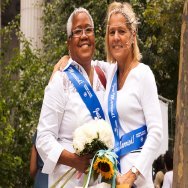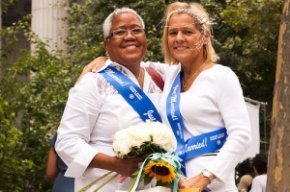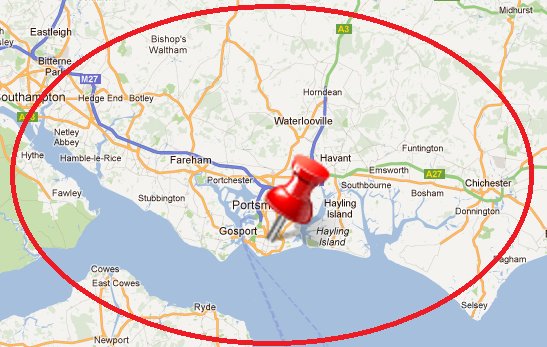How to Begin Counselling for Gay Couples


"Gay Marriages NYC" © Joseanavas
Let’s make this straight(!)forward for the two of you:-
- Choose from our Face-to-Face (Portsmouth, Hampshire) service, or our Online video Skype service.
- Choose a day and a time that you and your partner could attend on a weekly basis (details here).
- Make contact with us.
- We’ll return your enquiry to discuss setting up an initial appointment.
GayCoupleCounselling.com won’t commit you to lengthy therapy and you’re not committed to a minimum (or maximum) number of sessions. We’ll start with one session to discuss the relationship problems, talk about what counselling-options there are for you, and to make sure that everyone is making an informed decision about LGBT Couple Counselling before arranging further weekly sessions.
Overview of Couple Counselling Sessions.
[appointments outerstyle=’float:right; clear:right; width:200px; margin:20pt 0 20pt 20pt;’]Firstly – the first session (an “assessment”).
- An assessment is where you and your partner meet with the gay couple counsellor to talk about your needs from counselling.
- The counsellor will ask some questions in order to see how you respond (this is an ethical approach: if you and your partner are unable to work with the counsellor’s therapy, then this may indicate that the counsellor is not right for you).
- The assessment session may also cover domestic violence/abuse if this is an issue for your relationship.
- Over several sessions (usually three – meet together, therapist meets with each partner separately), a basic picture is developed of the relationship and the couple are helped to understand their relationship’s “system” in greater detail.
- In the last session (of the assessment process) the couple and counsellor discuss what aught be the focus of future couple counselling work. The couple will be invited to begin the discussion, the counsellor helping the couple decide using knowledge gained from the previous three sessions.
After the assessment: beginning counselling.
- Setting the focus for couple counselling can be a tough assignment, but there is no hurry if you, your partner and the counsellor feel that progress is being made.
- Once a focus for couple counselling has been agreed, the couple can either continue to meet with the counsellor to work through the focus, or the couple can work on the focus by themselves.
- Sometimes working through the couple counselling assessment shifts the relationship sufficiently for the couple to be able address the focus themselves.
- Sometimes the couple continue to work with the counsellor.
Ongoing Counselling Sessions.
- If the couple choose, they can continue to work with the couple counsellor after the assessment is completed & the focus is agreed.
- Because the focus is at the centre of couple counselling, setting a specific number of sessions is usually unnecessary.
- The couple will will work with the counsellor on the focus until the couple believe enough work has been done.
- Sometimes the couple counsellor may query the couple on if enough work has been done (sometimes a couple fear leaving counselling in case the relationship breaks down again – the counsellor will help with this).
- For budgeting reasons, the couple may wish to agree set a specific number of sessions with the therapist, perhaps to be reviewed as the end of each set number is approached.
Ending Couple Counselling.
- The couple are free to leave couple counselling at any time they wish; the counsellor’s way of working ensures that the couple’s relationship is kept at the centre of the therapy, and that the partners are being encouraged to become their own therapists (with support from the counsellor).
- The counsellor’s aim is to make him/herself redundant – and for the couple to be able to continue their relationship work between themselves.
- Counselling is a temporary intervention – the couple will become their own therapists.
Other facts about LGBT Couple Counselling.
- Sessions are usually 50 minutes (other session lengths can be discussed with the counsellor).
- For safe containment, the session time begins at the agreed hour. Sometimes the couple do not arrive on time (or, on Skype, log on in time) and this may mean that the couple receive less time as sessions cannot be extended.
- If only one partner is available, the session may not proceed unless an agreement has been put in place about how the missing partner is managed (eg brought up to speed when they arrive, or that the session does not begin until both partners are online). Arrangements and agreements about this can be discussed with the therapist.
- Usually the couple are invited to decide what they wish to begin working on during each session; the counsellor generally does not tell the couple what to work on.
- The counsellor does not impose normative rules of behaviour (“What a normal couple would do here is…”) and does not impose solutions (“Here’s something that works…”). Whilst initially this might be frustrating for the couple who want to be “cured”, this approach ensures that the couple come up with – and are invested in – their own solutions. Remember – the therapist’s aim is to become redundant, and by the couple investing in discovering their own solutions with the therapist’s interventions, the couple can leave therapy being in charge of their own relationship.
Therapist Directory…Now, have a look at the Counsellor Directory to find a counsellor you and your partner might like to work with.





